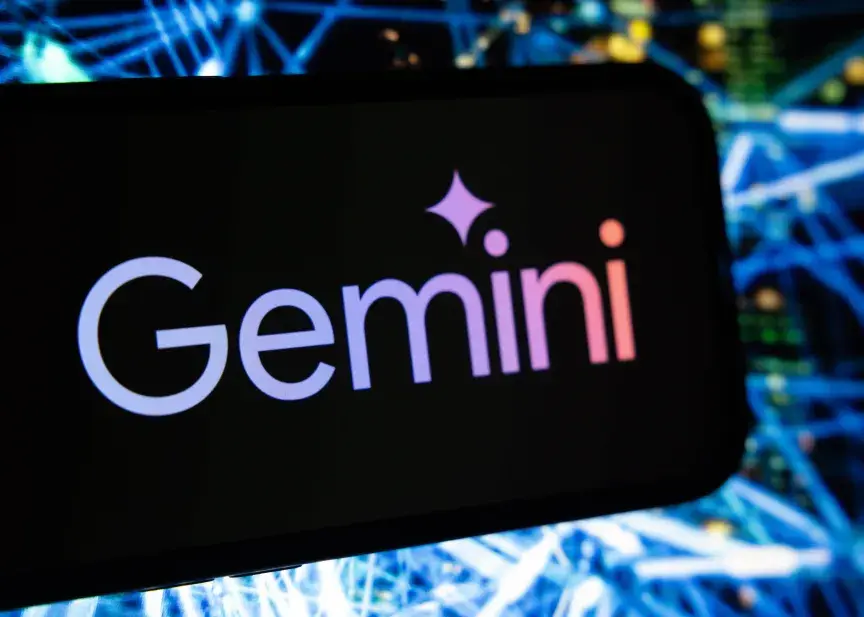"Google Slashes AI Costs by 75% with Game-Changing Implicit Caching for Gemini Models"
- Tech Brief

- May 10
- 3 min read

In a landmark move set to ripple through the global artificial intelligence ecosystem, Google has introduced a major upgrade to its Gemini AI platform: "Implicit Caching." This feature—announced on May 8, 2025—enables developers using Gemini 1.5 models (specifically 1.5 Pro and Flash) to reuse previously submitted prompts and context data without resending them, potentially cutting operational costs by up to 75%.
While the update may appear technical on the surface, its deeper implications hint at a strategic realignment in Google’s AI services, cost democratization, and heightened pressure on rivals like OpenAI, Anthropic, and Meta.
Who, What, When, Where, and Why
Who: Google Cloud and DeepMind, under the Alphabet umbrella.
What: A new API feature called "Implicit Caching" for Gemini 1.5 AI models.
When: Publicly launched May 8, 2025.
Where: Available globally through Google Cloud’s Gemini API.
Why: To reduce cost, improve API efficiency, and empower developers building long-context AI applications.
Why Now? Underlying Causes and Motivations
There are three converging forces behind this release:
Rising competition: OpenAI's GPT-4 Turbo and Anthropic's Claude 3 Opus have rapidly pushed the envelope on long-context understanding and low-latency output. Google’s previous models, while advanced, faced criticism for latency and cost inefficiencies in extended sessions.
Developer adoption stagnation: For many startups and mid-tier developers, high API costs—especially for multi-turn conversations or document processing—were a barrier to entry. Implicit Caching strategically addresses this friction point.
Internal innovation pipeline: As part of Google’s broader Gemini strategy (unifying Bard, AI Studio, and the Duet AI branding), this caching update reflects a shift toward building modular, developer-first AI infrastructure capable of long-term market dominance.
Short- and Long-Term Consequences
🔹 Short-term Impact
Developers: Immediate cost relief (up to 75%) for apps requiring multi-message context (e.g., coding copilots, AI tutors, legal assistants).
Enterprise adoption: More companies—especially those in healthcare, legal, and customer support sectors—may pivot from in-house models to Gemini for affordability.
Competitors: Puts pressure on OpenAI, Meta, and Cohere to match pricing structures or implement similar memory optimization techniques.
🔹 Long-term Impact
Market shifts: With reduced cost, Google's Gemini may become the go-to choice for enterprises previously hesitant due to budget constraints.
Innovation explosion: More room for experimentation among indie developers, fueling a new generation of AI-native tools and startups.
Regulatory pressure: Increased use of cached contextual memory may raise new privacy concerns, prompting lawmakers to revisit how AI stores and reuses sensitive information.
Multiple Perspectives
Google's stance: Aimed at “unlocking long-context applications without prohibitive cost.” According to Gemini product director Josh Woodward, this is about “scaling reasoning at every layer of the tech stack.”
Developer reaction: Mostly positive, but with some caution around transparency—is the cache always retrievable? What happens when prompts are updated?
Policy experts: While cost cuts are welcome, the blurred line between cached memory and user data retention has ignited debates about AI accountability and GDPR compliance in Europe.
Historical Context and Pattern Recognition
This isn't Google's first optimization play. In 2017, Google’s Transformer architecture redefined context handling. In 2023, PaLM and Bard aimed to integrate this into search and assistant use. Now, with Gemini 1.5 and Implicit Caching, the focus is firmly on enterprise AI scale—a marked pivot from consumer-facing gimmicks to backend infrastructure that powers economies.
This also mirrors a historical pattern: dominant tech firms offering tooling cost reductions to throttle competition and corner market share—a tactic reminiscent of Amazon Web Services’ race to the bottom in cloud pricing.
Conclusion: Key Takeaways and Future Outlook
Google’s Implicit Caching is not just a technical upgrade—it's a strategic maneuver. It democratizes access to powerful models, potentially reshapes competitive dynamics, and catalyzes broader AI adoption across sectors. However, the feature’s success will hinge on:
Transparent documentation and performance monitoring.
Balancing efficiency with privacy.
Competitors’ counterstrategies.
With global AI usage projected to increase 8x by 2027 (Statista, 2025), innovations like these are the tectonic shifts that will determine who leads the AI infrastructure war.
The race is no longer just about model accuracy. It’s now about cost-efficiency, contextual memory, and control. And for the moment, Google just raised the bar.

Comments